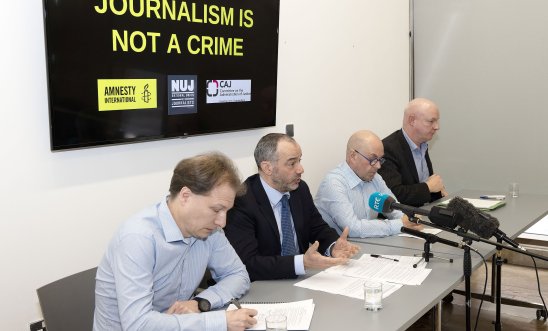
Press releases
Northern Ireland: ‘Shocking’ police surveillance report raises more questions than answers

323 applications for journalists’ phone data including 10 attempts to identify confidential sources
500 applications for lawyers’ phone data raising questions on compromised lawyer-client confidentiality
‘The police appear to have forgotten that journalism is not a crime’ – Patrick Corrigan
Responding to the publication of a Police Service of Northern Ireland (PSNI) report on their use of surveillance on journalists and lawyers, Patrick Corrigan, Amnesty International’s Northern Ireland Director, said:
“Almost twelve months since we first asked about the extent of police surveillance, we finally get some answers but alarmingly are left with even more questions.
“The extent of surveillance revealed in the report goes well beyond the number of cases previously identified through the Investigatory Powers Tribunal.
“It’s shocking that the police sought journalists’ communications data over 300 times, for the clear purpose of identifying their confidential sources on ten occasions.
“In one in ten of the 323 cases targeting journalists’ communications data, the PSNI categorised the journalist as a ‘criminal suspect’. The police appear to have forgotten that journalism is not a crime.
“As well as spying on journalists, the revelation that there were 500 applications for surveillance on lawyers, 365 of which related to private communications data, is simply startling. This report tells us nothing about how many of those incidents may have compromised lawyer-client confidentiality, a legally protected right.
“This report falls badly short of what is required. We will work to ensure the McCullough Review provides more answers, but we are clear that it cannot be a substitute for a proper independent inquiry established by the Policing Board or the Justice Minister.”
Daniel Holder, Director of the Committee on the Administration of Justice (CAJ), said:
“The PSNI line seems to be shifting from downplaying that there was a broader problem, to reframing their position, to conceding that they were at it but that it’s not what we think. This is not convincing.
“Barry and Trevor were ‘suspects’ in their arrests in relation to their work on the 'No Stone Unturned' documentary.
“There are also broader questions on the indirect surveillance of journalists’ sources through officials and officers.”